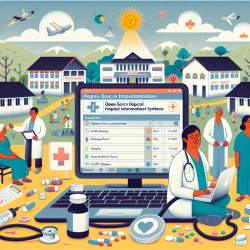Understanding the Connection Between Trauma and Loneliness
The recent research article, "The unseen epidemic: trauma and loneliness in urban midlife women," sheds light on a critical issue affecting many women in urban settings. This study highlights the prevalence of trauma and its association with increased feelings of loneliness among midlife women, particularly those from minority backgrounds. As practitioners, understanding these findings can help us improve our approaches to therapy and support for this vulnerable population.
Key Findings from the Research
The study involved 50 midlife women, predominantly Black/African American, and highlighted three primary themes associated with loneliness:
- Trauma
- The burden of responsibilities for others
- Unhealthy relationships
Trauma, particularly physical and emotional abuse, was significantly associated with higher loneliness scores. These findings suggest that trauma-informed care is essential in addressing loneliness in this demographic.
Implementing Trauma-Informed Approaches
As practitioners, we can implement trauma-informed approaches in our therapy sessions to better support urban midlife women. Here are some strategies to consider:
- Create a Safe Environment: Ensure that therapy spaces are welcoming and safe for clients to share their experiences.
- Educate Staff and Providers: Train staff on the impact of trauma and loneliness to provide empathetic and informed care.
- Screen for Trauma and Loneliness: Incorporate screening tools for trauma and loneliness in initial assessments to tailor interventions appropriately.
- Foster Interpersonal Relationships: Encourage clients to build supportive networks and engage in community activities to mitigate feelings of isolation.
Encouraging Further Research
While this study provides valuable insights, further research is needed to explore the nuances of trauma and loneliness in diverse populations. Practitioners are encouraged to contribute to this body of research by conducting studies within their own communities and sharing findings with the broader mental health field.
Conclusion
The connection between trauma and loneliness in urban midlife women is a significant concern that requires our attention as practitioners. By implementing trauma-informed approaches and encouraging further research, we can enhance the support we provide to this population and help mitigate the adverse effects of trauma and loneliness.
To read the original research paper, please follow this link: The unseen epidemic: trauma and loneliness in urban midlife women.










